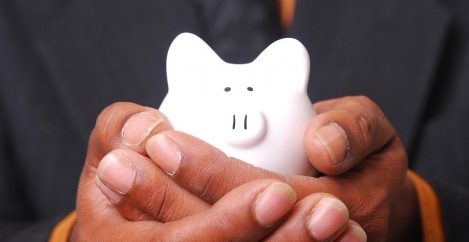January 7, 2021
Giving CEOs financial incentives seems to damage long-term profitability
 The greater stress companies put on financial incentives and financial performance in bonus systems for CEOs, the more negative the impact is on the firm’s financial performance, claims new research from Vlerick Business School. These findings come from a research study into the top 600 European firms and their CEOs remuneration.
The greater stress companies put on financial incentives and financial performance in bonus systems for CEOs, the more negative the impact is on the firm’s financial performance, claims new research from Vlerick Business School. These findings come from a research study into the top 600 European firms and their CEOs remuneration.
The study was conducted by Xavier Baeten, a Professor in Reward and Sustainability at Vlerick Business School and director of the school’s Executive Remuneration Research Centre, alongside Vlerick researcher, Marthe Van Hove. The study examined the pay levels, habits and incentives of CEOs and CFOs of the STOXX 600 – a stock index of the 600 largest firms across European countries.
The research claims, that these financial performance incentives had a positive impact on the firm’s financial performance in the short-term. Therefore, granting high-level remuneration and committing strongly to incentives such as bonuses and share-related reward schemes, is an effective way to boost firm’s profitability, but only in the short-term.
Professor Xavier Baeten says, “These financial incentives have a positive impact on firms profitability in the first year – the short-term, however, as we look into the long term, the impact over a two-year period is very surprising. All the positive effects disappear, and the incentives even end up having the opposite effect. Loading CEOs with as many financial incentives as possible is not an effective way to boost financial performance, as it treats CEOs like machines having an exact input and an exact output, reminding us of the saying “the grass won’t grow by pulling it”. CEOs need a variety of motivations and purposes to be incentivised by – not just money.”
[perfectpullquote align=”right” bordertop=”false” cite=”” link=”” color=”” class=”” size=””]”The grass won’t grow by pulling it.”[/perfectpullquote]
The researchers, who have reached their 10th consecutive year of this study, also reviewed the time period from 2014-2019, to see how CEOs remuneration and incentives has changed over these 5-years. The research claims that over the 5-year period, overall CEO remuneration in Stoxx Europe 600 firms peaked in 2015 at €3.5M, and has decreased since then to €3.3M in 2019.
The research also claims that over this time period, obliging CEOs to keep shares once vested has grown by 14 percent. Also, a number of interesting evolutions have taken place related to key performance indicators used in incentive systems.
Professor Xavier Baeten said,“Between 2014 and 2019, we have seen an increase in the use of non-financial KPIs (such as employee-related measures, sustainability-related measures etc.) in short-term incentive schemes from 71 percent of the firms in 2014 using non-financial KPIs, this has increased to 83 percent in 2019. A remarkable finding is that in 2019, no more than 30 percent of the firms used non-financial indicators in their long-term incentive schemes. We see that employee-related measures, such as employee engagement, are quite popular (used by 44 percent) in non-financial KPIs, and there has been an important increase in the use of CSR measures, now being used by 30 percent of the firms, up from 12 percent in 2014.”
The researchers also highlight other interesting results about UK CEOs in comparison to their European colleagues, including UK CEOs earning significantly more than their colleagues in Belgium, Netherlands, Scandinavia and Germany. Only French CEOs earned more on average per year – which the researchers suggest could be due to the fact French companies in the index were generally larger firms.
Image by Charles Thompson













